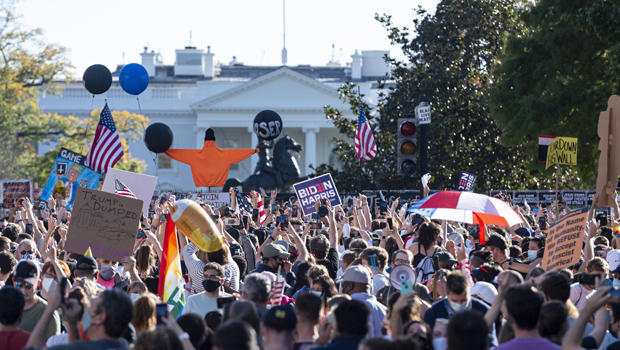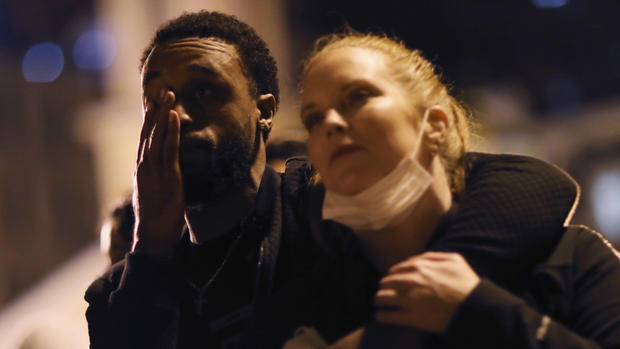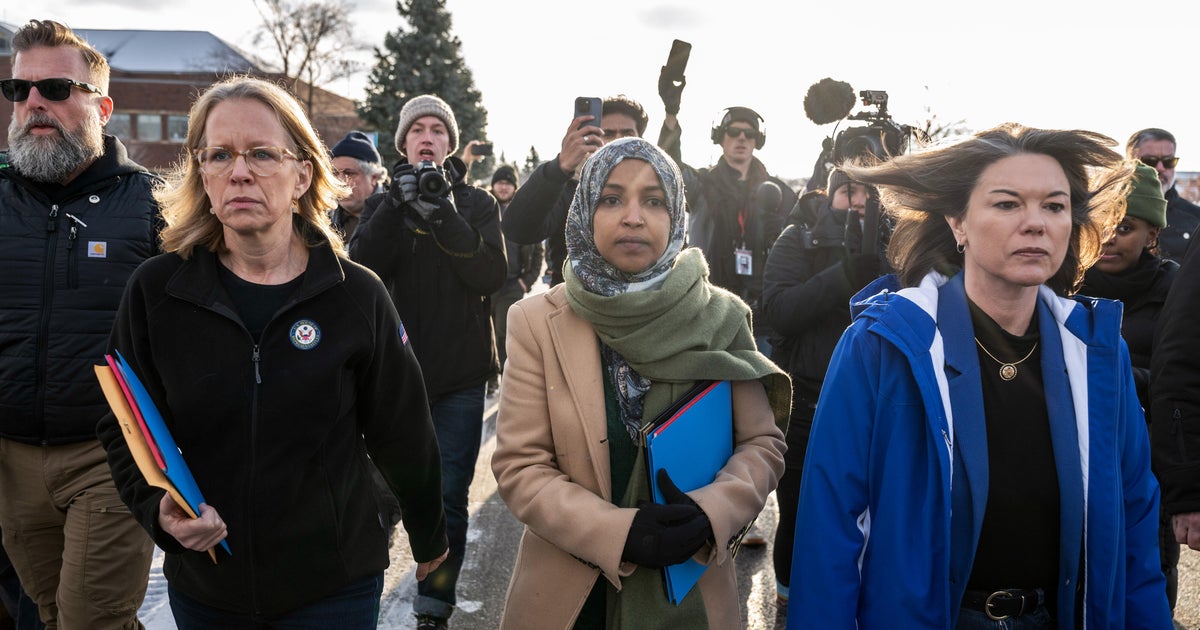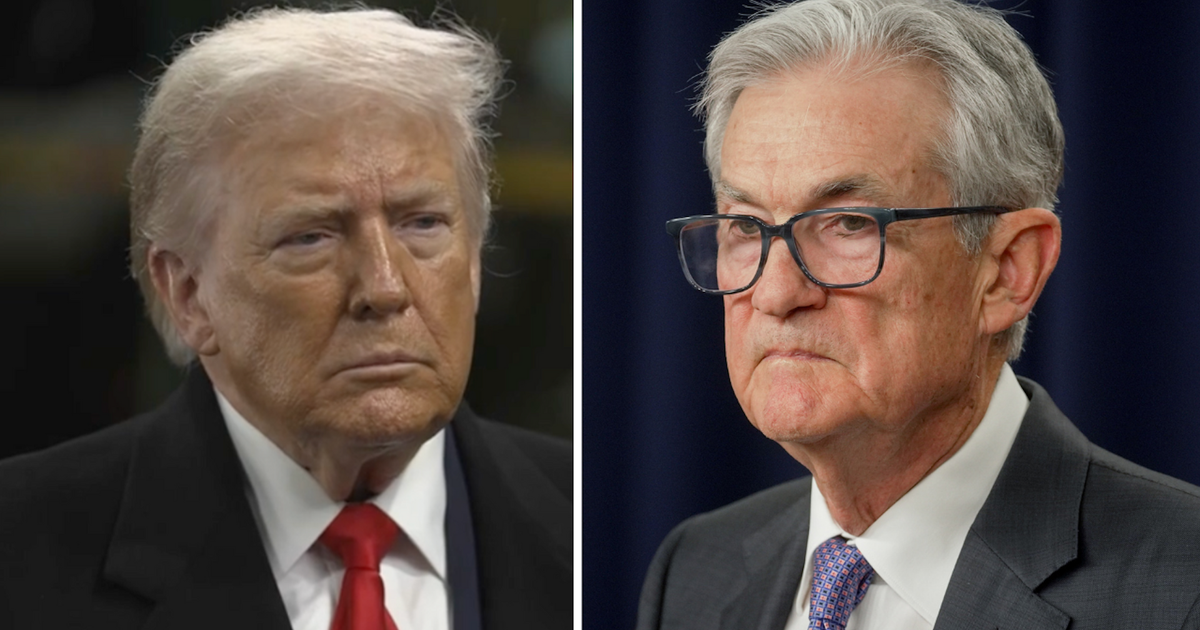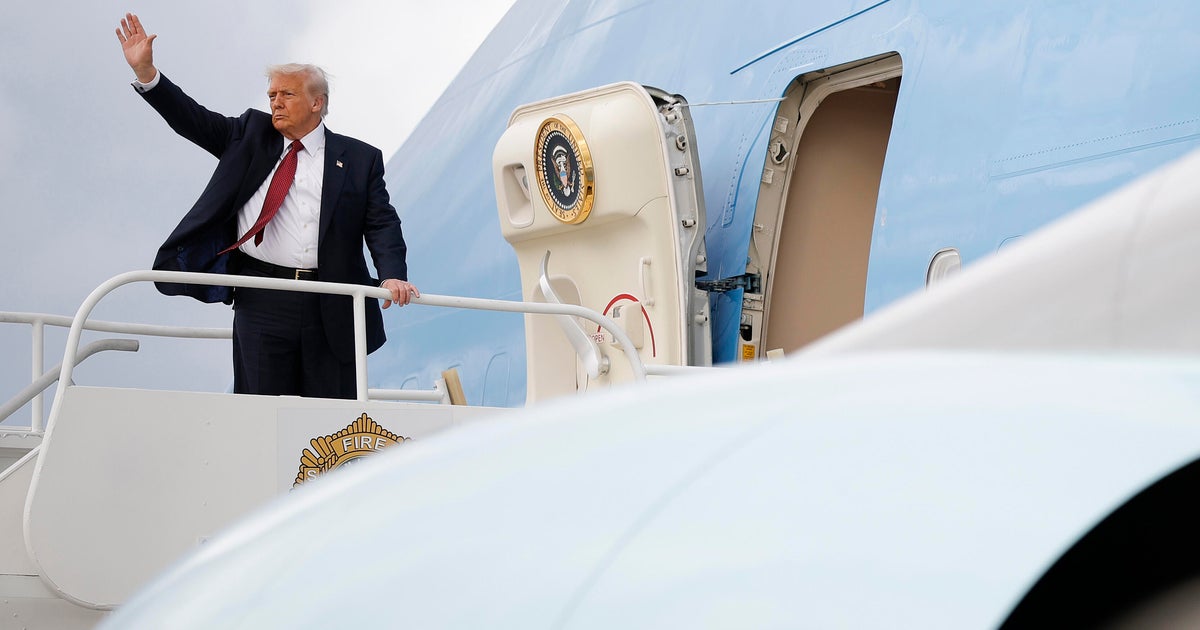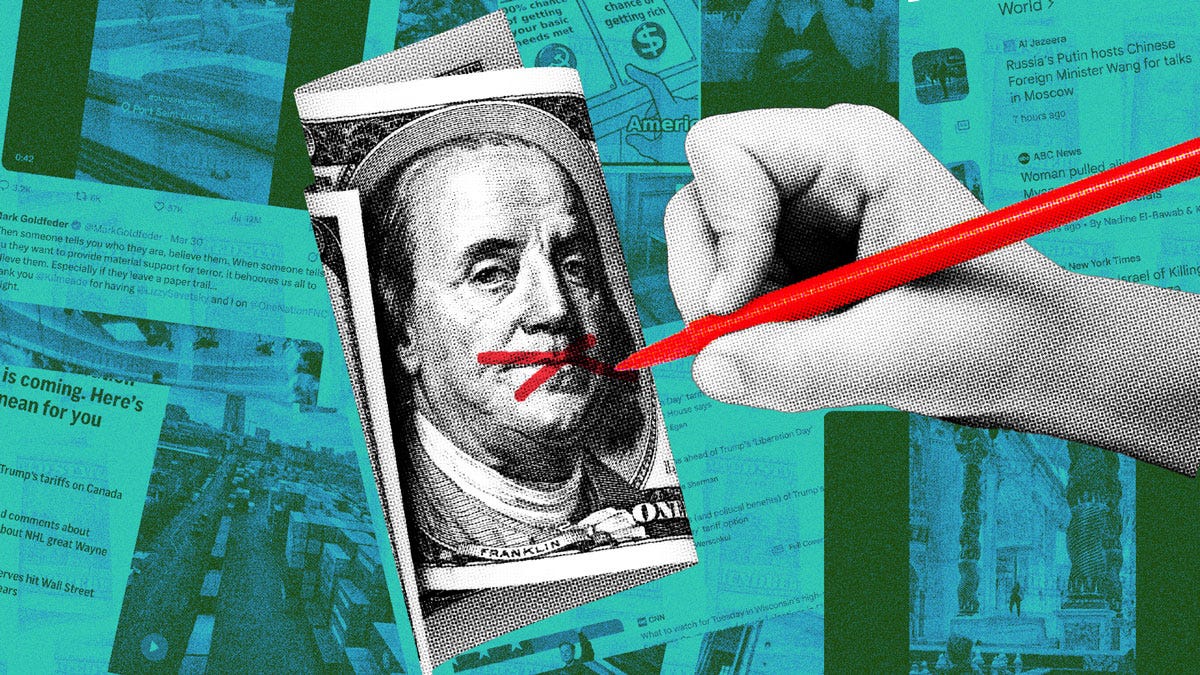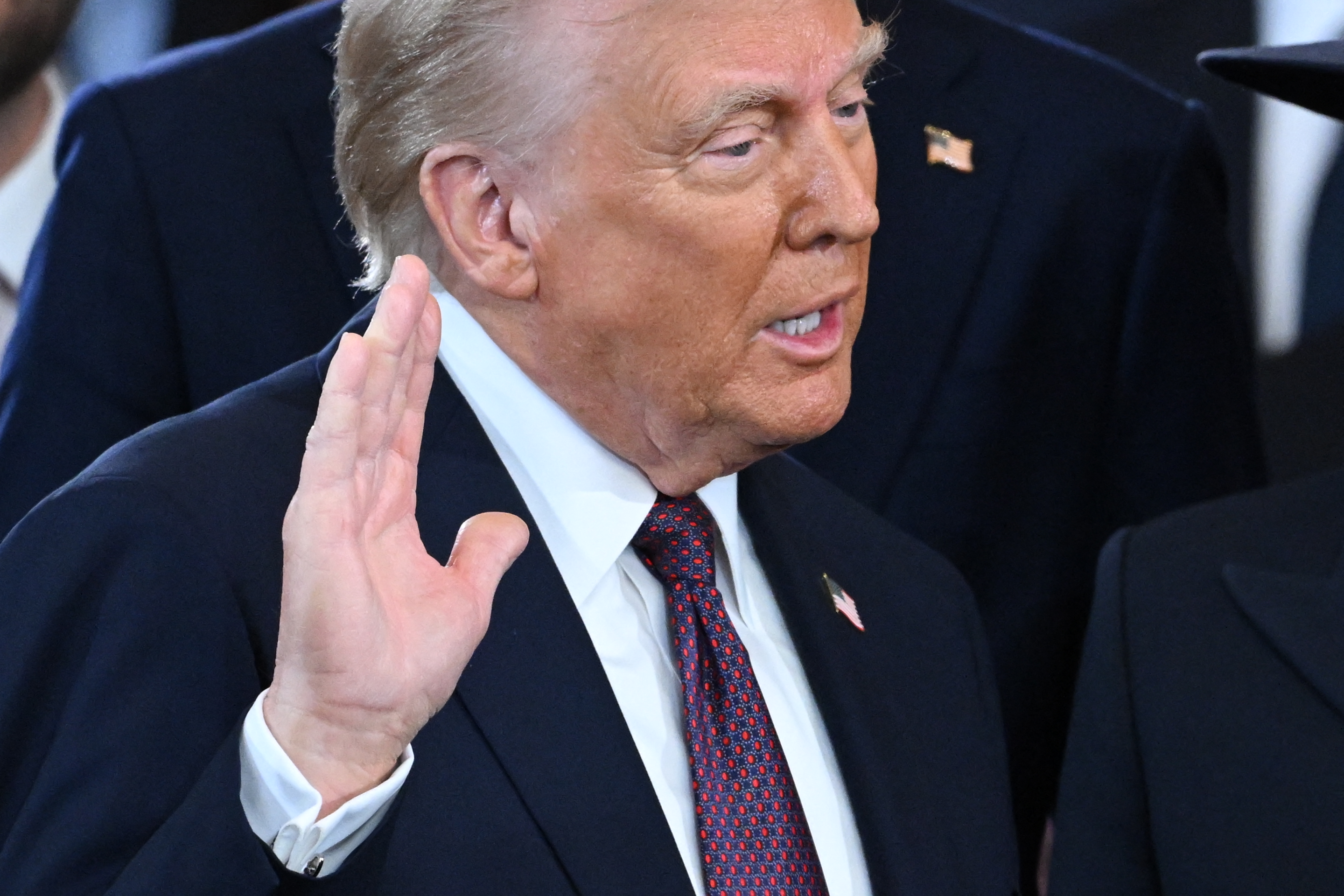The election aftermath, and the power of the vote
Is it really all over?
After a wild week of waiting, President-elect Joe Biden delivered his victory speech last night in Wilmington, Delaware.
"I pledge to be a president who seeks not to divide, but unify," he said. "We have to stop treating our opponents as our enemies. They are not our enemies. They're Americans.
"This is the time to heal in America."
President Donald Trump has not called to congratulate Biden. He has not conceded defeat. He continues to cry foul. "But ultimately, I have a feeling judges are going to have to rule," Mr. Trump said Thursday during the counting of ballots in key swing states.
What we don't know is whether a litigious president unwilling to go down without a fight will get his ultimate wish: a ruling from the U.S. Supreme Court.
What we do know is what we saw for ourselves: The candidates framing the stakes in this election as the most important of our lifetimes, if not the history of our country.
Never mind the threat of coronavirus; we saw long lines at polling places, ballots cast in numbers demonstrating how intensely Republicans and Democrats both believed that the course of our democracy was indeed on the line. Voter participation was the highest in more than a century.
And the outcome?
Journalist Fareed Zakaria said, "What's extraordinary about this election is, despite a pandemic, Great Depression levels of unemployment, huge turmoil, an impeachment before that, you have ended up seeing the partisan divide as deep, as rooted, as ever."
Zakaria is the author of "Ten Lessons For a Post-Pandemic World. "In some ways the pandemic has been a great revealer, in others it's been an accelerator," he told correspondent Martha Teichner. "What the pandemic has revealed, perhaps more than anything else, is that we're really two countries."
So, no real movement across the ideological divide. Think World War I trench warfare – advances and retreats measured in feet. Stalemate, but a war just the same. New York's Times Square boarded up, an unscalable wall around President Trump's White House, armed protestors
Describe an emotion you've felt this past week: anxiety? Fear of what might happen?
Hrair Balian, who heads the conflict resolution program at the Carter Center in Atlanta (which has monitored more than 100 elections worldwide), told Teichner, "You know, 50 years ago, when I moved to the U.S. from Lebanon, I never thought I would be concerned about violence, conflict, even bloodshed in this country.
"Look, what I've seen around the world is far, far more violent, bloody and destructive. Conflict and civil war? We're not there. But nonetheless, that is not to say we should not be concerned. I think Americans should be worried about the fabric of our society really fracturing. We haven't crossed that line, it hasn't fractured yet. But we're not too far from that line, either."
Teichner asked, "This is the United States. That can't happen here, could it?"
"Hypothetically, yes," Balian replied.
Yesterday morning at 10:36 Washington time, President Trump, en route from the White House to his Virginia golf course, tweeted this:
Within an hour, news organizations, including CBS, called the election for Joe Biden and Kamala Harris. A national street party erupted across the United States.
Not celebrating: the roughly 70 million Americans who voted for President Trump.
How many of them no longer trust the legitimacy of the process, such as this man in Georgia echoing the president's words: "It almost seemed like they were waiting to see how many votes Trump had and then they would count the rest to make sure Biden had just enough."
What is the long-term cost to our democracy of widespread doubt?
Biden said on Saturday, "I'll work as hard for those who didn't vote for me as those who did. Let this grim era of demonization in America begin to end here and now."
How likely is it that Biden will convince nearly half the electorate that he is their president, too?
"Our nation is shaped by the constant battle between our better angels and our darkest impulses," he said. "Now what presidents say in this battle matters. It is time for our better angels to prevail."
Longtime political commentator Joe Klein said, "I'm not gonna be a Pollyanna here. This is gonna be really hard. It's gonna be one of the hardest things we've had to do as a republic, which is to tone things down.
"Job number one, probably for Joe Biden it looks like, but also for the Congress and the courts and for us as citizens, is to figure out ways to reach out to each other and start conversations."
And what are the chances of that happening? Or of the issues Biden campaigned on – a minimum wage of $15, higher taxes on corporation and the wealthy – actually getting passed?
Unless the Democrats can flip the Senate (likely only if they win both Georgia's runoff votes in January), President-elect Biden's agenda will hit a formidable red wall there, by the name of Mitch McConnell, the same Mitch McConnell who set out to make Barack Obama a one-term president, the same Mitch McConnell who sabotaged Mr. Obama's Supreme Court pick, Merrick Garland.
For the moment, the GOP still sounds like the party of Trump.
"Philadelphia elections are crooked as a snake," said Sen. Lindsey Graham.
Sen. Ted Cruz said, "[Democrats] are setting the stage to potentially steal an election."
But according to Joe Klein, "I don't think you can underestimate the incredible power that a president has in setting style for the country. Just look what Donald Trump has done. I think that if you have a different president setting the tone, there are things that are gonna change."
The dozens and dozens of executive orders and regulatory roll-backs President Trump signed into effect, with the stroke of his pen, Joe Biden plans to start undoing them on Day One, January 20.
He is expected to re-engage with the world (albeit a warier world)
Fareed Zakaria said, "The world has seen that there is this backlash in America to its engagement in the world, and so it won't be able to forget it. You know, Joe Biden can demonstrate that there are two Americas, and one does want to be engaged. He can move aggressively and intelligently. But it won't change the fact that people have seen that other America, and they know it's lying there, maybe dormant for now, but it could rear its head again.'
The whole world is watching America, trying to read Joe Biden and Kamala Harris after their historic victory.
Biden said, "We lead not by the example of our power, but by the power of our example."
Biden won with more votes – 74 million and counting – than any American president ever. Harris will be the first woman; the first person of African-American and Asian descent; and the first child of immigrants to be elected vice president.
"Every little girl watching tonight sees that this is a country of possibilities," Harris said Saturday.
During his victory speech, Biden told his audience, "It's time to put away the harsh rhetoric, lower the temperature, see each other again, listen to each other again, and to make progress."
What's the takeaway from this messy, sometimes ugly election? Good news, according to noted Harvard University historian Danielle Allen, author of an award-winning book about the Declaration of Independence.
"It's really healthy for us to see who we are and where we are," she told Teichner. "It's surely an expression of disagreement with the other side and a vote against the other side, but it's a vote, not a pitchfork. That's the important part. It's the choice to use a vote to express that disagreement, which is the commitment, the pledge card to a peaceful resolution of conflict. And that's a beautiful thing."
But, a lot can happen between now and Inauguration Day.
For more info:
- "Ten Lessons for a Post-Pandemic World" by Fareed Zakaria (WW Norton), in Hardcover, eBook and Audio formats, available via Amazon
- Hrair Balian, The Carter Center
- Danielle Allen, director, Edmond J. Safra Center for Ethics
Story produced by Mark Hudspeth. Editor: Joe Frandino.
